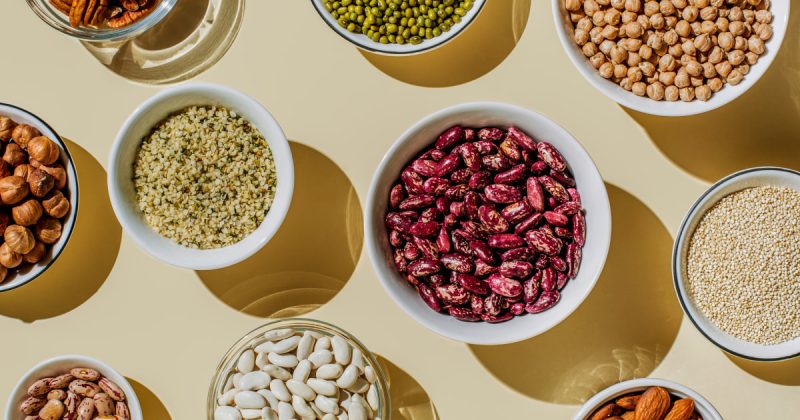
Americans are obsessed with protein. It’s the go-to nutrient for weight loss, energy, and muscle building. But in our protein-packed pursuit of wellness, we’re often overlooking a crucial element: fiber. Nutritionists and gastroenterologists are sounding the alarm, warning that a high-protein diet, particularly one heavy on meat, can lead to a serious fiber deficit.
Dietary guidelines recommend a daily fiber intake of 25 grams for women and 38 grams for men. However, the average American consumes a mere 15 grams, falling drastically short of the recommended amount. This shortfall is even more pronounced among those following protein-centric diets, as these often displace other fiber-rich food sources.
So, why is fiber so important? It’s a type of carbohydrate our bodies can’t digest, acting as a vital component of healthy bowel habits. Fiber also plays a critical role in blood sugar control, preventing the sharp spikes associated with rapidly absorbed simple sugars. Beyond this, fiber is essential for maintaining a thriving gut microbiome – the community of microorganisms in our digestive tract that influence digestion and immune function. An imbalance in the gut microbiome, or dysbiosis, has been linked to a range of chronic diseases, including obesity and diabetes.
Fiber’s power lies in its ability to nourish beneficial gut bacteria. These bacteria ferment fiber, producing butyrate, a molecule with potential anti-cancer properties. A lack of fiber essentially starves the microbiome, potentially leading to chronic problems. Moreover, fiber may contribute to lower rates of heart disease by reducing cholesterol absorption, although more research is needed in this area.
There are two main types of fiber: soluble and insoluble. Soluble fiber, found in foods like seeds, beans, and lentils, absorbs water, forming a gel that slows digestion. Insoluble fiber, found in vegetables and whole grains, doesn’t dissolve and helps move food through the digestive system. Ideally, we should aim for a balance of both types to maximize digestive health.
To ensure adequate fiber intake, incorporate at least one fiber-rich food into every meal. Legumes, seeds, nuts, fruits, and vegetables are all excellent sources. While aiming for 20-30 grams of fiber daily from food is ideal, over-the-counter supplements can provide support if needed. Methylcellulose is a good option, as it’s a soluble fiber that tends to cause less gas and bloating than other supplements.
Remember to increase your fiber intake gradually, starting with 3-5 grams per day. Listen to your body – if you experience excessive gas or bloating, slow down the process. Staying hydrated is also crucial when increasing fiber consumption. By balancing your protein intake with sufficient fiber, you can support a healthy gut, improve digestion, and promote overall well-being.










